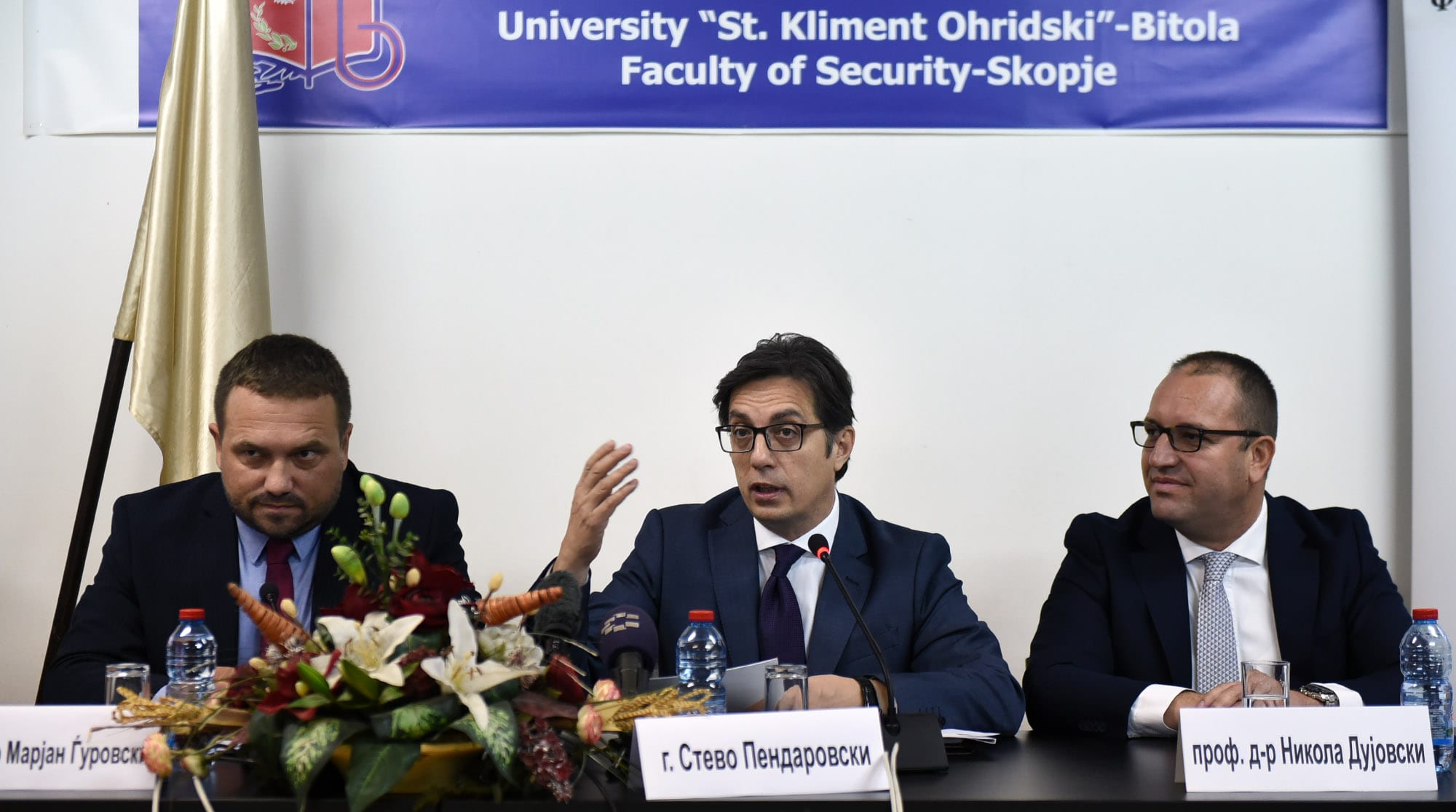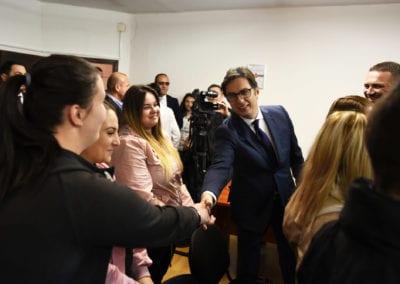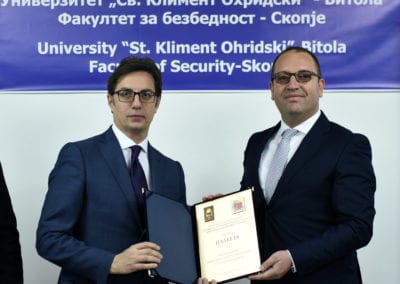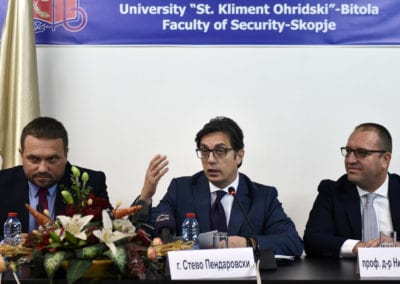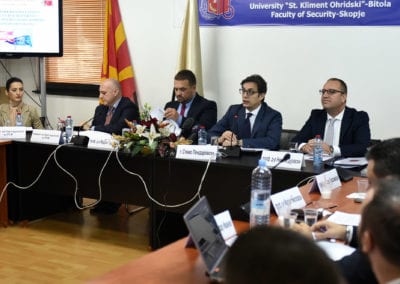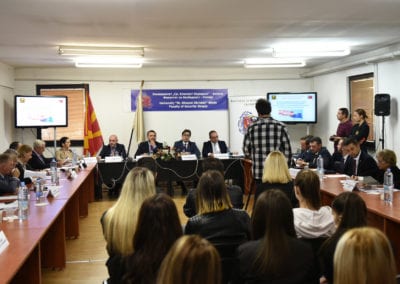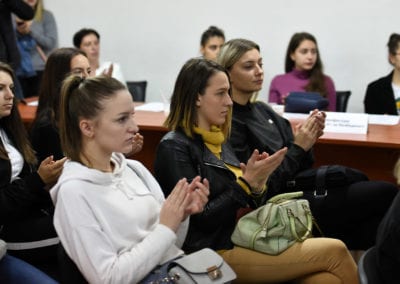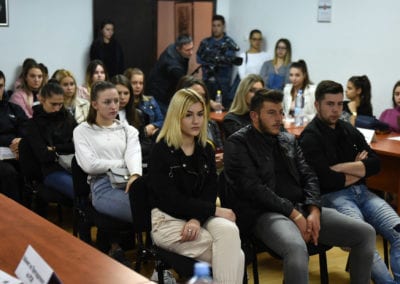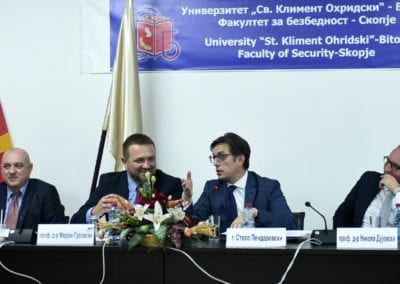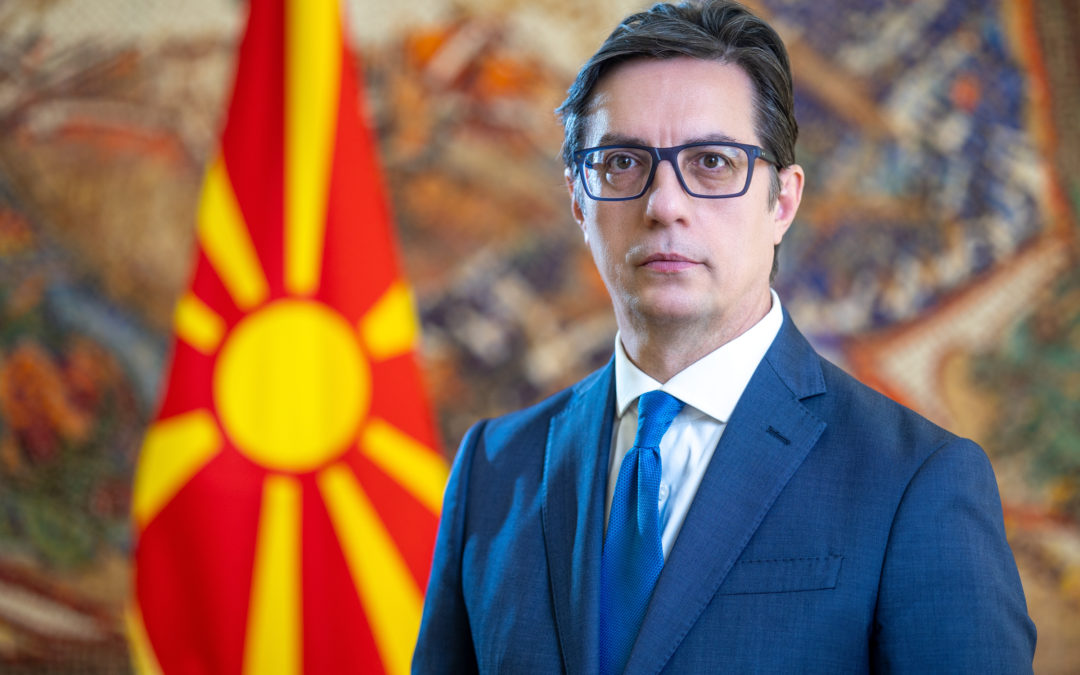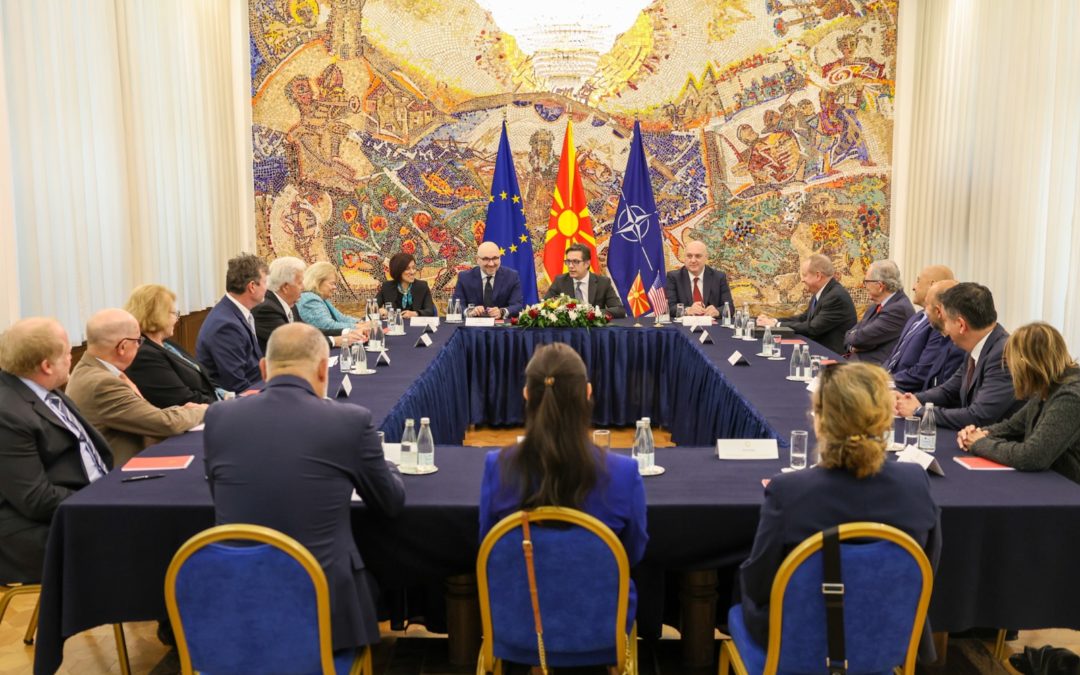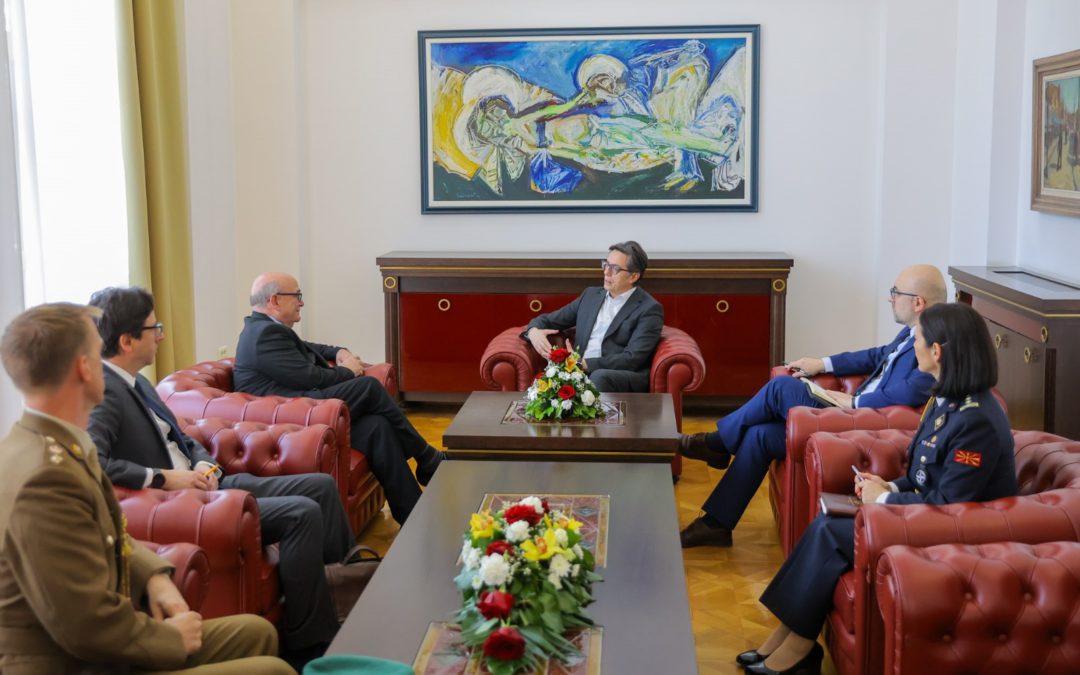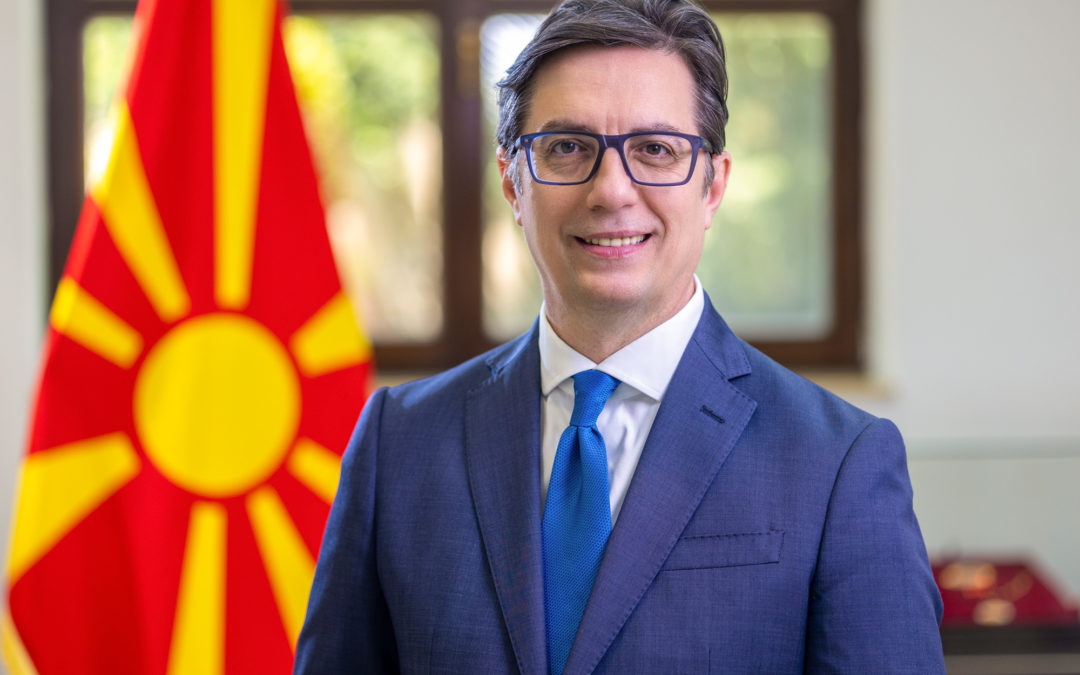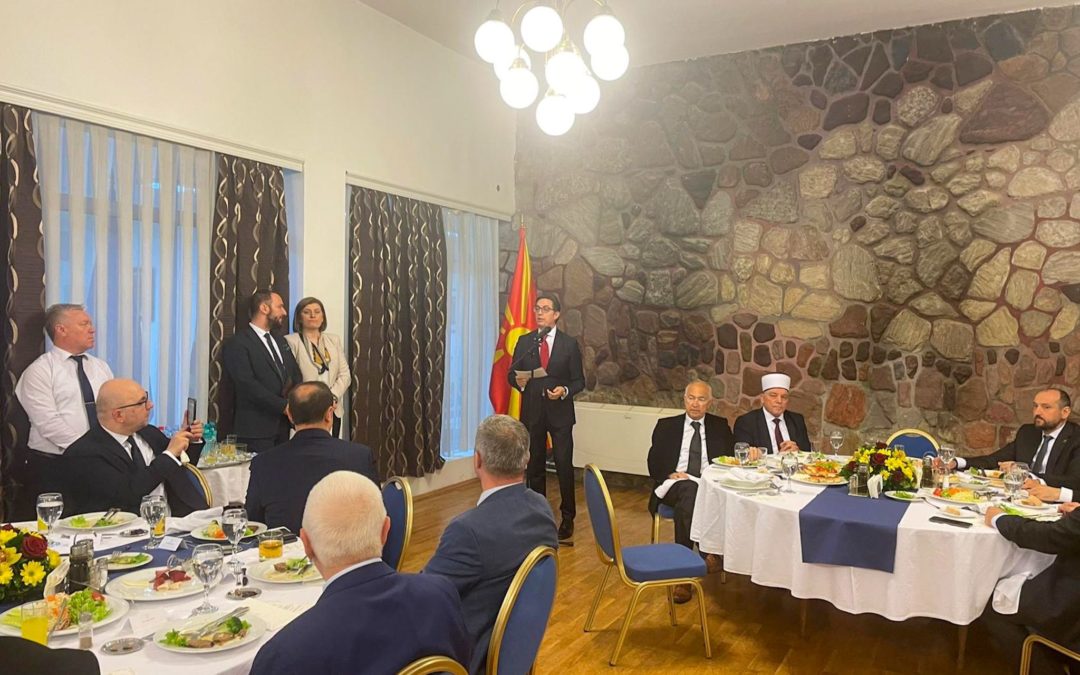The President of the Republic of North Macedonia, Stevo Pendarovski, addressed today the scientific-expert debate “Strategic Security and Defense Priorities – Republic of North Macedonia after NATO Membership”, organized by the Faculty of Security – Skopje, in cooperation with the President’s Cabinet. In his address, President Pendarovski said he was surprised that a head of our state visited this important institution for the first time ever.
“I hope that by the end of my term, I and my heirs too, will come to this institution more often, because, for years and decades, it produces staff which is not educated elsewhere”, President Pendarovski said. Speaking about 21st century security challenges, he stressed that the best way to address them is to work with such qualified people who understand them. The President emphasized that it is unacceptable for the first time in 42 years that a head of the state enters such an institution.
The following is the integral address of President Pendarovski.
Distinguished students and professors, the occasion for today’s debate is the new Defense Strategy, which has been unsigned for several years and will soon come into force, because we need new strategic documents that correspond with the new reality we are in – the key is that we will become a member of the NATO Alliance soon. Such discussions are important for the country and for all of us to better map the security environment and deal with the strategic security issues that we, the region and the world are facing.
Let me briefly reflect on the topic at the beginning of the debate. Undoubtedly, the key strategic breakthrough that North Macedonia has made in terms of its own security is the NATO membership invitation we received in July 2018. It was a historic breakthrough and a turning point that put us as a state finally on the world security map once and for all.
NATO membership means that we will sit at the same table and receive an equal vote with the other member states. But it also means that the 29 existing member states will have an obligation to collectively care for and protect our security, and we know that security is the cornerstone of democratic consolidation and economic prosperity in every state.
One of our goals is to implement the priority reforms envisaged in the Strategic Defense Review that should enable us to have an Army that is prepared and compatible with the NATO structures.
Equally important are the security sector reforms that have been halted for years and were only accelerated in the last year and a half. As a future full member, we must also be active in the Alliance’s operations. Our goal is not to be a member on the paper, but to be an active member ready to contribute to global security. We were present in Iraq, still contributing to Afghanistan, Lebanon and Bosnia and Herzegovina, while providing significant logistical support to KFOR in Kosovo, and our active presence in some future missions to enhance international security is also possible.
Following the invitation to join the Alliance, we are in quieter waters, but security challenges in the region are still present. Terrorism, religious extremism, cyber attacks, disinformation campaigns, hybrid wars are present and will not disappear anytime soon. The best way to tackle contemporary security threats that are high on NATO’s agenda is to keep track of information and trends and to face them together with other members of the Alliance.
In the recent past we have had examples when we were the target of sophisticated hybrid campaigns aimed at undermining the democratic process and impeding the will of the citizens. Contemporary hybrid threats will continue to operate beyond state borders, so it is important to combat them together.
Ladies and Gentlemen,
We are aware of all the challenges the European Union is facing, as well as the enlargement debates currently taking place in Europe, but we expect a clear invitation to start accession negotiations. Any delay in the region’s European prospects means potentially opening up space for other actors that offer no viable alternatives to either the EU or NATO. However, to be real, it depends largely on us and on our reform results as a country, above all on the rule of law and the fight against high corruption.
The progress of the Balkans in the last decade has been indisputable. From a region of conflict, we are growing into a region of good news. North Macedonia has made a strategic step towards all five of its neighbors, contributing to the stability of the region. The bilateral agreement signed with Bulgaria facilitated the relations between the two countries. At the same time, after years of frozen conflict, the process of negotiations with Greece on the name issue was resumed and resulted in the signing of the Prespa Agreement, which opened the door to NATO membership. Of course, we are ready to continue to improve our relations and cooperation with all our neighbors, and, in parallel, to continue to be an active player in regional security.
Ladies and Gentlemen,
I wish all the participants a successful debate. I am convinced that such gatherings help to better understand contemporary security challenges, and our common goal is, by considering the arguments, to come up with the best possible solutions to the problems in our time.
Thank you.
